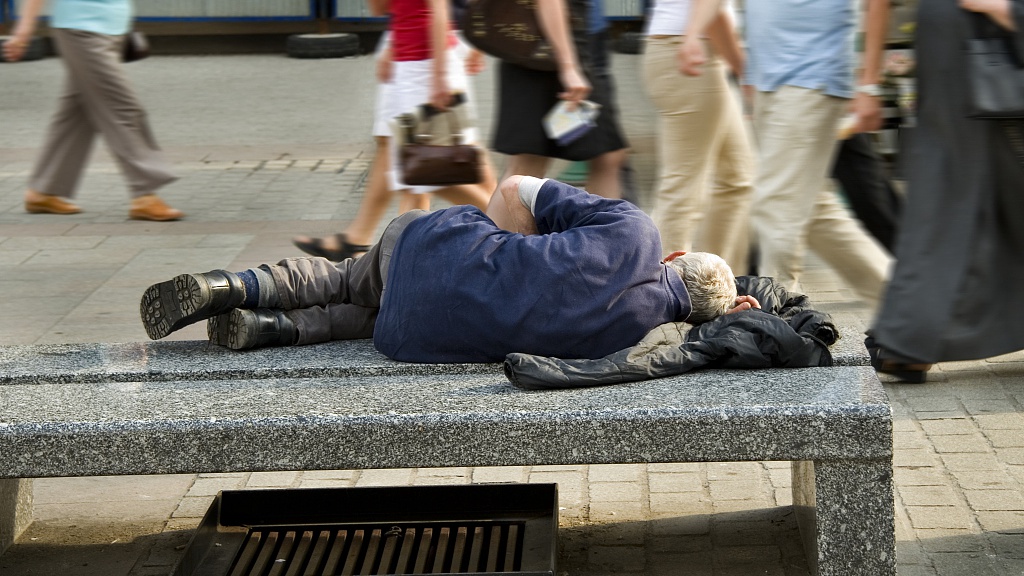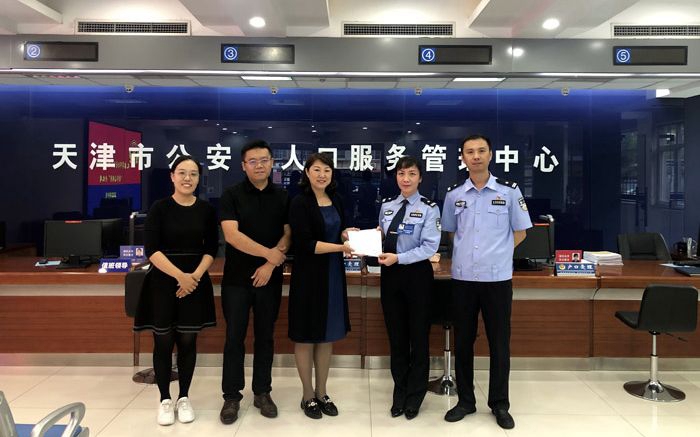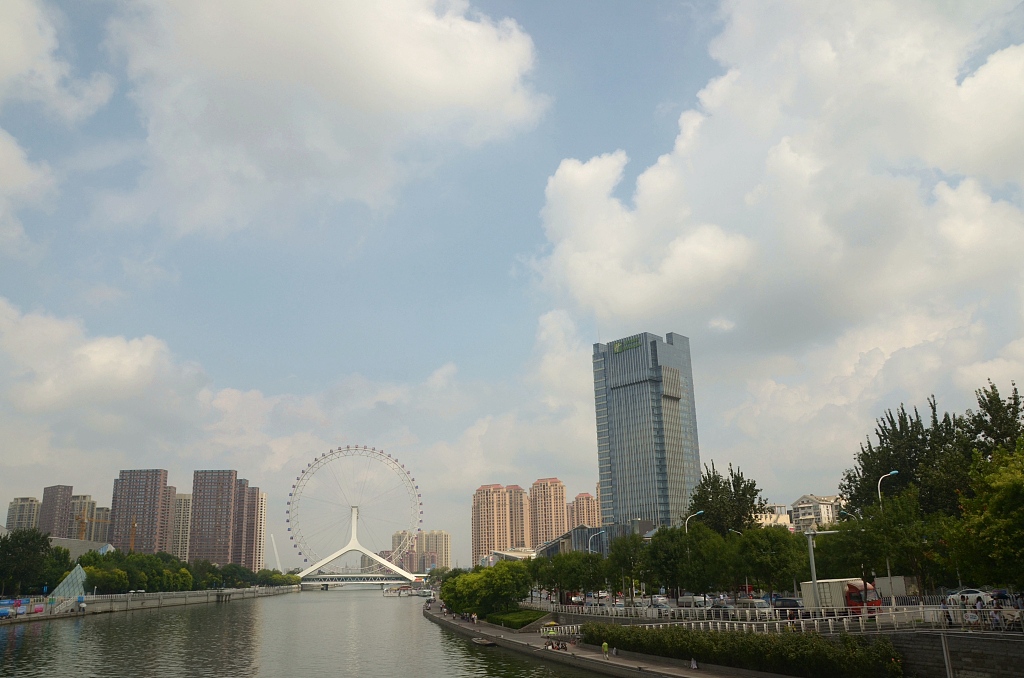
A wanderer on the street. /CFP
A wanderer on the street. /CFP
A total of 193 wanderers – or those without homes – received their "Hukous," or household registration, in north China's Tianjin Municipality on Monday, which means they will have access to the same public services that permanent urban residents have.
According to staff at the rescue station, most of the 193 people suffer from mental or physical disabilities, such as dysgnosia, Alzheimer's disease or other diseases, and are not able to make a living on their own.
Wang Yingmei, a director in charge of public welfare in Tianjin Municipal Civil Affairs Bureau, said that Tianjin shelters about 7,000 wanderers every year, many of which suffer from disabilities which make it difficult for them to remember where their families are, or where they originally migrated from.
Tianjin's civil affairs department uses DNA sequence alignment and facial identification to help some of them find family members, but for many others, there are few options left. There were 193 left in the past 28 years, said Wang.
How should the city deal with these 193 people?

Civil Affairs Bureau of Tianjin award the Hukou to the wanderers. /Civil Affairs Bureau of Tianjin
Civil Affairs Bureau of Tianjin award the Hukou to the wanderers. /Civil Affairs Bureau of Tianjin
"Even the rescue station could fulfill their daily demands, it is still necessary to give them a legal identification," said Guan Xinping, professor of Nankai University. "Rescue stations should be functional as a temporary shelter for the wanderers, but when it turns into a long-term issue, the group of people should be included in the social security system."
As China kicks off its seventh national population census on Sunday, the city decided to solve the "accumulated" problem and give the wanderers a home.
By offering a "Hukou" to them, the wanderers will be able to be included in the city's social security system. It means that orphans, or people living in extreme poverty will be provided with living and medical insurances, which could help them live a decent life and get access to rehabilitation therapy.
There are 24 minors among the 193, who were suffering from dysgnosia, and they will be able to go to school as well, according to Tian Zhiguo, a staff member of the Tianjin Rescue Station, who is in charge of helping the minors.
Tianjin is not the first city to promote the registration of the wanderers. In 2016, Weihai City in east China's Shandong Province offered household registration, or Hukous to 35 wanderers, the first city in China to do so. The Ministry of Public Security in 2015 had issued instructions for cities to provide shelter and care for this group of people.
Following their lead, provinces including Jiangsu, Hunan, Anhui have also provided support for this group within their jurisdictions.

A photo of Tianjin City. /CFP
A photo of Tianjin City. /CFP
According to Wang Jinhua, a director of the Ministry of Civil Affairs, as of December in 2019, China has already provided Hukous, and the corresponding access to public services, for 13,899 homeless people.
In March, 2020, at least 11 ministries and departments jointly issued a notification, urging local governments to make arrangements for homeless people, giving them access to protections.
As China kicked off its seventh national population census on November 1, the wanderers should have the right to be included as legal city residents as well, said Tian Zhiguo.
"It is the citizen's political empowerment to enable everyone to have a citizenship. Even they cannot understand what it meant to have a Hukou, we should respect their right. It shows the attitude as well as the tenderness of a metropolis," said Tian.
But after getting the official registration, the future of the wanderers' life should also be taken into consideration, said Professor Guan Xinping.
"Tianjin has designed a series of measures, which cover their lives, education and medical requirements, but the policy could still be further detailed. For instance, what about those who are able to work? Can they get some training, which can help them returning to the society? We have a lot more to think about," Guan added.